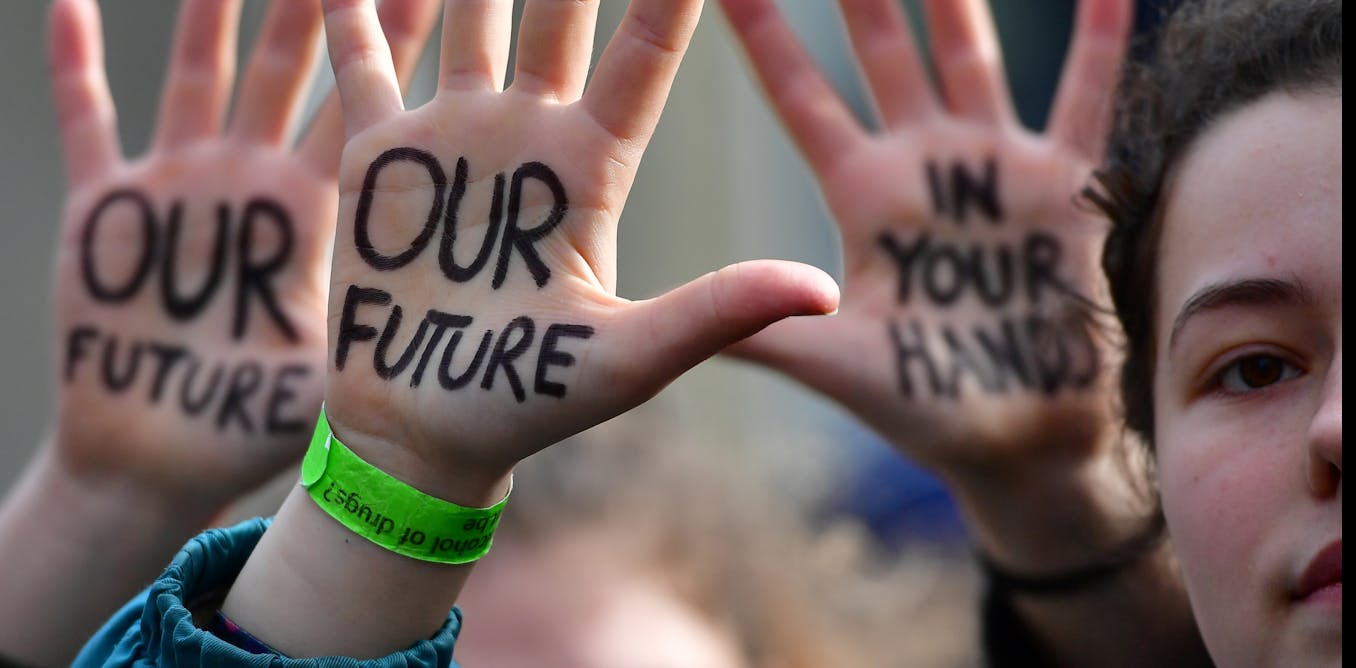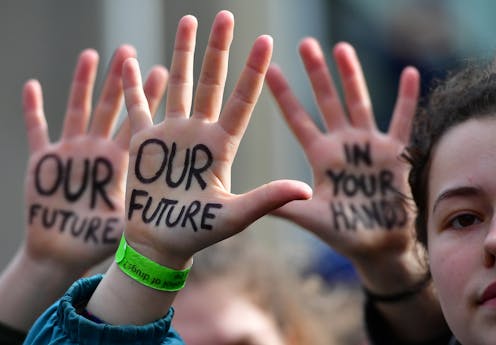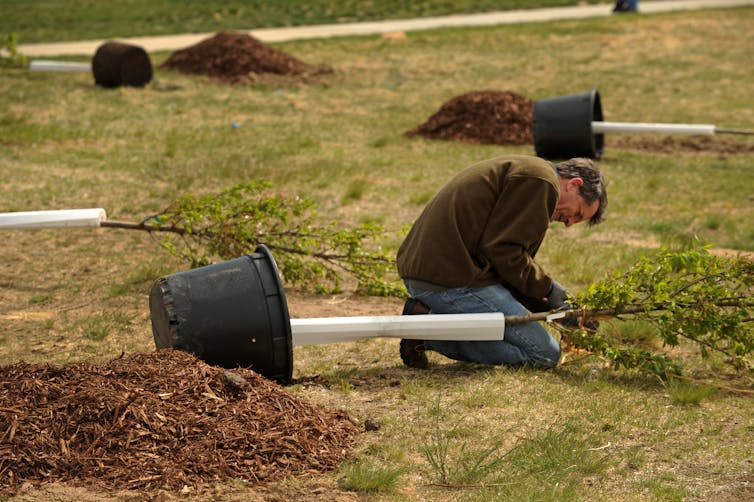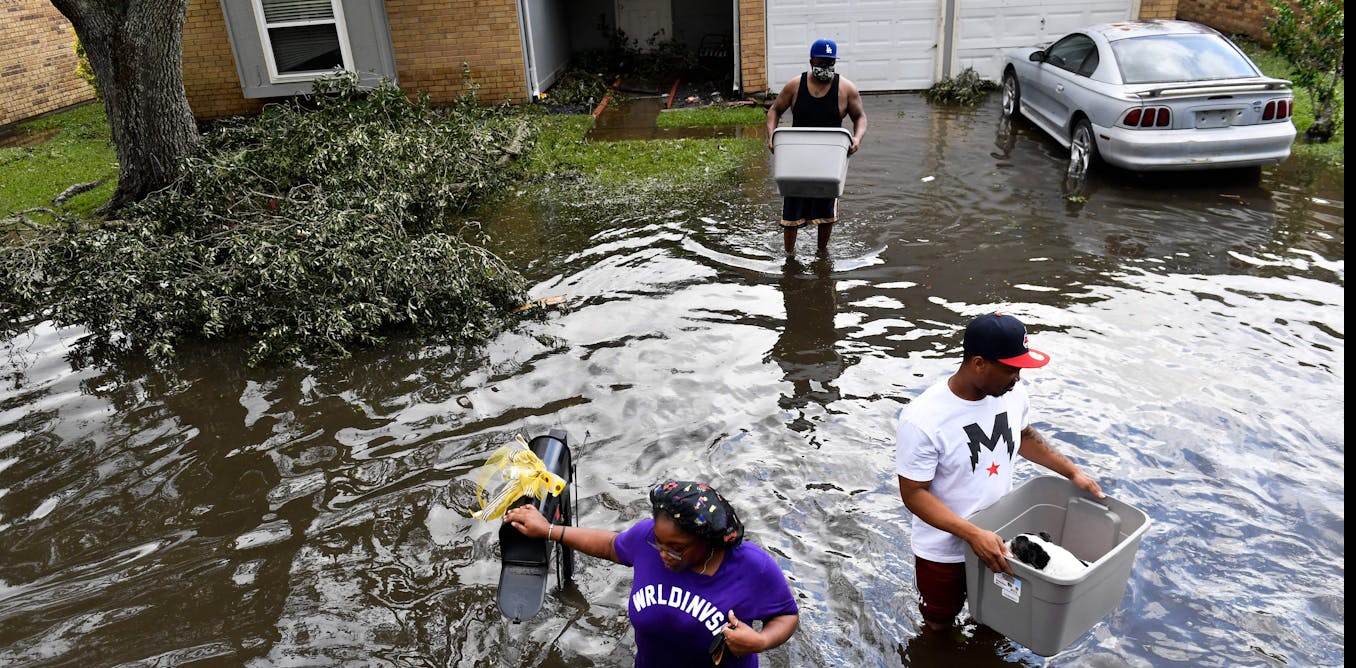7 ways to get proactive about climate change instead of feeling helpless: Lessons from a leadership expert
To learn to be more proactive, start by viewing yourself as someone who cares about the environment and the future.


Humans do not capitalize nearly enough on our most significant evolutionary advantage: a unique ability to take forward-looking actions that influence the future for the better.
Exhibit A: Climate change is here, and things are changing quickly for the worse. However, even as dangerous and costly weather events grow more frequent and severe, we still don’t do what we need to do.
Ideally, everyone would ratchet up their efforts to protect the climate as smartly as possible. But how can each person help in the most valuable ways? As a professor of organizational behavior, I study leadership and proactive problem solving. Research in these fields offers some helpful advice.
Untapped human potential
“I’d love to change the world, but I don’t know what to do, so I leave it up to you.” - Alvin Lee, Ten Years After, 1971
When too many people think like those lyrics, problems don’t get solved.
The only way societies will do enough to keep climate change in check is if they reject passivity, experiment with new strategies and tactics, and wisely strengthen their coping repertoire.
People avoid doing much about climate change for many reasons: 1) They worry about time and cost; 2) they believe it’s difficult to change; 3) they have faulty assumptions, like feeling unable to help or that other people or new technologies will save the planet; 4) they have psychological biases, like caring more about the present than the future; and 5) they’re uncertain about the best ways to participate.
Laying a foundation for higher-impact action begins with changing common mindsets. Most essential, and a tough task, is to behave far more proactively than most people have up until now.
How to become more proactive
Based on psychological and organizational behavior research, here are some starting points:
1) View yourself as someone who cares about the planet and the future.
Your self-identity is how you view and describe yourself, and this generates corresponding behaviors. How you self-identify can help you think about your future, choose your preferred actions and provide a motivating standard or model to strive for. Take “caring” a step further by viewing yourself as a proactive person who thinks ahead and helps to make the future better than it would be without your contributions.

2) Assess, honestly, your efforts to reduce the harmful effects of climate change.
In the same way people tend to overestimate their driving, athletic and leadership skills, they also tend to believe they are more environmentally friendly than most other people. This misleading bias can breed complacency and hinder action.
If people assess themselves accurately compared to what they could and should be doing, most will see great untapped potential to make a difference. To unleash that potential, consider applying time management strategies found in business management that can free you from countless unpleasant and unproductive tasks and allow you to devote attention and time to impactful activities that take most advantage of your skills.
3) Assume responsibility for engaging more usefully in solving the problems of climate change.
Feeling responsible motivates action. A key question is how you define responsibility.
This is different from pinning all responsibility for fixing things on the guiltiest transgressors. In the blame game, fossil fuel companies have worked hard to shift responsibility for the world’s climate change predicament to consumers and not themselves. Remember this from George Bernard Shaw: “We are made wise not by the recollection of our past, but by the responsibility for our future.” What the future holds really is up to us.

4) Resolve to actively navigate the changing future.
In general, thinking more about the future – rather than just the present and past – yields more positive life and work outcomes. Regarding climate change, it is imperative to look ahead and act accordingly so you’re helping to forge the best possible outcomes rather than leaving them to chance.
Today’s leading psychologists strongly advise more mental prospecting – actively envisioning likely and possible futures, exploring for opportunities like old-time gold prospectors and salespeople searching for new leads – and continually seeking the best pathways forward.
5) Learn more about humanity’s biggest challenges.
Climate change affects everything, so it shouldn’t be hard to find an arena that’s personally interesting. Learn enough from accurate sources to discuss with others, consider how your skill sets can help and figure out where you can contribute best.
Here are a few places to start: Project Drawdown offers big-picture solutions for lowering greenhouse gas emissions. NOAA provides advice for what individuals can do and where to learn more. The BBC had a good list of 10 simple ways to take action on climate change a few years ago. Climate scientist Michael Mann’s new book discusses what individuals can do politically and collectively for the highest impact.
6) Help solve problems and seek constructive opportunities.
A common refrain in MBA and executive development programs is to turn problems into opportunities, and climate change offers many opportunities, from cleaner energy sources to better construction techniques and food production. This approach opens conversations about long-term change rather than just short-term damage control. It also uncovers diverse views, addresses underlying problems rather than just their visible symptoms and encourages more ideas – thus enhancing problem-solving.
7) Address the root causes and embrace “multisolving.”
In solving business problems, it’s important to not simply treat the most visible symptoms but to identify and address root causes. “Multisolving” identifies solutions that address a root cause of multiple problems.
Climate change is one root of many current problems, from disasters and species extinctions to food and water shortages to social injustice and wars. Military officials often refer to it as a “threat multiplier.” Stopping climate change could help alleviate pressures elsewhere. Backing up further in the cause-and-effect chain, carbon emissions cause global warming and climate change.
So, personal efforts to reduce your “carbon footprint,” like using less fossil fuel, help. So does pushing politicians and businesses to reduce carbon and methane emissions by limiting fossil fuel extraction and investing in zero-carbon energy.
The best climate solutions will reduce harm and spread all kinds of benefits. Stabilizing the climate will require help from every direction. It isn’t just an “all hands on deck” moment – the planet needs all heads and hands being proactive.![]()
Thomas S. Bateman does not work for, consult, own shares in or receive funding from any company or organization that would benefit from this article, and has disclosed no relevant affiliations beyond their academic appointment.
What's Your Reaction?






























































































